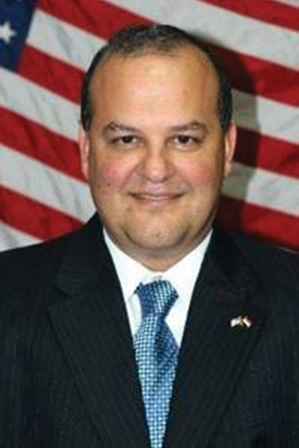Understanding Why People Leave the Foreign Service
State VP Voice
BY TOM YAZDGERDI

AFSA is concerned about the loss of highly skilled and experienced diplomats during the last several years; the lack of Senateconfirmed career diplomats leading bureaus and in key overseas posts; and the highest percentage of political-appointee ambassadors (45 percent) in recent memory.
AFSA leadership has raised these grave concerns with both department management and bipartisan leaders on Capitol Hill—and will continue to do so.
On a more basic level, we want to get better data on why our people actually leave the Foreign Service. We all are aware of the high-profile departures of high-level officials who were either pushed out or resigned due to policy differences, but what are the reasons rank-and-file members leave?
If AFSA could find out what specifically motivates people to resign, we could advocate for and shape targeted personnel policy changes that can retain this talent. Right now, State has an exit interview process that is, to be frank, less than ideal.
Aside from helping us address concerns that affect all of us as Foreign Service members—career opportunities for spouses/partners, promotion numbers, workplace flexibility, etc.— having more and better data would let us know how we are doing with regard to advancement of women and minorities, which is one of AFSA’s top concerns.
The department is doing a better job of attracting these two groups at the entry level, certainly better than when I joined in 1991. I enjoyed meeting the newest A-100 class, the mighty 200th—which is “herstoric” in that for the first time ever women outnumbered men, 44 to 26.
Anecdotal evidence suggests that the department has problems retaining this talent through the mid-level. AFSA does not know who exactly (by gender, race, ethnicity, age) is resigning from the Foreign Service and why. If we could gather this information, we might begin to see trends that may (or may not) indicate unconscious or unintended bias.
For that reason, AFSA has decided to establish a standing committee on diversity and inclusion that can focus attention in this area, review best practices and recent scholarship, and come up with workable proposals.
AFSA has decided to establish a standing committee on diversity and inclusion.
We also plan to raise this issue with the Director General and work with Human Resources to revamp the exit interview process to include more specific questions and personal data.
Those who resign are free to choose not to provide this personal information, or even to participate in the process, but we are hopeful that most will see the benefit for the Service in doing so.
We will keep you informed as this effort unfolds—and we welcome your input. We all want to make the department a better place to work and one that reflects the diversity of America.
We are also tracking the following issues:
Clinton email investigation concludes. During the investigation, AFSA assisted more than a dozen members who were contacted by Diplomatic Security about potential security violations resulting from the recent reclassification of emails sent several years ago from the private server of former Secretary of State Hillary Clinton.
Those members received letters stating that while DS found the incident to be a valid security violation, they would not be held culpable. This vague language left many questions unanswered. AFSA requested, and was granted, confirmation from DS that there will be no adverse action of any kind taken against these individuals.
The recent report to Congress closing the investigation found that while the use of the system for official business increased the risk of compromising classified information, there was no systemic or deliberate mishandling of classified information.
Paid parental leave. AFSA is joining the Balancing Act affinity group and others in urging the department to continue to push Congress and the Office of Personnel Management to create a new form of paid parental leave that applies uniformly to birth, non-birth and adoptive parents.
We were disappointed to learn that, in late September, the Senate voted down (by one vote!) House-passed language to authorize paid leave under the Family and Medical Leave Act as a part of the FY2020 National Defense Authorization Act.
We have no doubt that paid parental leave is a core issue for productivity, morale and the retention of a diverse workforce.

